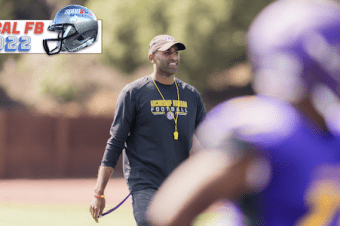Controlling the Butterflies
Health & Fitness February 13, 2012 johnwooton 0
Follow these tips to help better manage your nerves prior and during competitions
Get Mental : Erika Carlson
Everyone gets nervous, it’s a pretty normal part of the competitive experience “” the jitters, “butterflies,” racing thoughts and increased muscle tension and heart rate. However, some athletes get more nervous than others.
Extreme nervousness causes symptoms like nausea, vomiting, severe muscle tension and very worrisome mindset. While nerves are normal, they can often have a negative impact on performance, and for many they simply can take the fun out of competing. The good news is, there are lots that can be done to get nerves under control and actually help you perform your best.
>> INVITE IT, DON’T FIGHT IT “” Nervous symptom (jitters, muscle tension, nausea are caused by a rush a adrenaline (a hormone pumped out of our adrenal glands) which is present to help support our “fight or flight” response. So what does that mean for you? Rocket fuel. Adrenaline is a shot of fuel for your muscles. When you are faced with a physical challenge, adrenaline is your friend. Learn to stay calm and use the fuel to your advantage.
>> GET OUT OF THE FUTURE, STAY PRESENT “” Along with symptoms mentioned above, many athletes experience excessive worry when they get nervous. The worried self-talk is most often focused on “what-if’s,” futuristic negative thinking.
– “What if I make a mistake?”
– “What if I don’t make the cut?”
– “What if I don’t score?”
This thinking intensifies nerves more. Shift thinking back to the performance-oriented, present thoughts: “Swing level”; “follow though”; “fast turn, push hard.”
>> BREATHE EARLY AND OFTEN “” The most simplistic advice is often the best. Slow, deep breaths (take them as often as you need them) are one of your best tools to help keep nervous symptoms under control. Deep breathing helps to relax muscle tension, slow heart rate, increase oxygen and keep you feeling in control. It’s nearly impossible to take a slow deep breath if your muscles (especially core muscles) are very tense. Try it: Tense up, think about what could go wrong and try to breathe deep. Any luck? Now try relaxing your muscles, stay present by focusing on your breath, feeling your lungs fill completely, and empty slowly. Better?
Like any skill, it takes practice to get good at applying these skills in a variety of situations. Be patient and practice, practice, practice.
Check out this article in the digital edition of SportStars Magazine…Controlling the Butterflies
Previous Article… 3 Ways to Magage Pregame Jitters
johnwooton
SportStars Magazine: High School Sports Articles Online SportStars is your go-to source for the very best high school sports articles in California. Player and team profiles, game coverage, health and fitness tips and the largest Camps, Clinics & Combine resource for athletes. We're the story behind the stats.










No comments so far.
Be first to leave comment below.